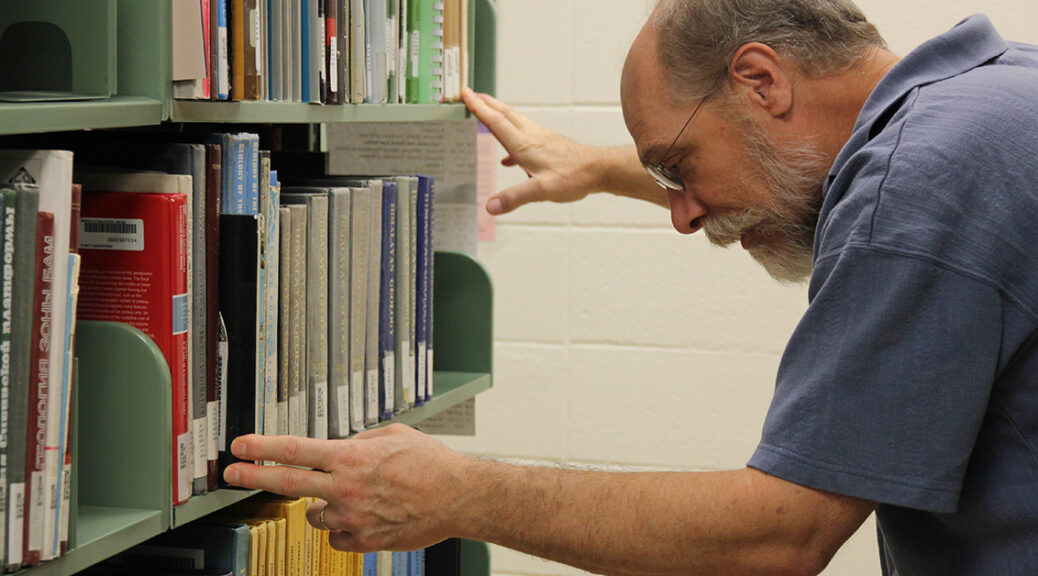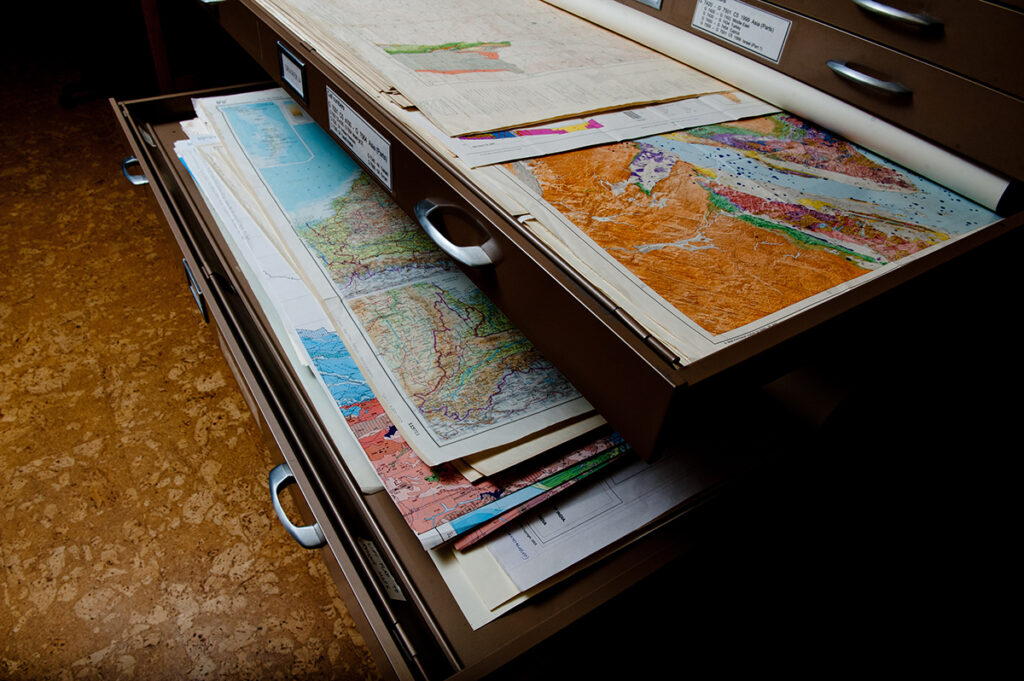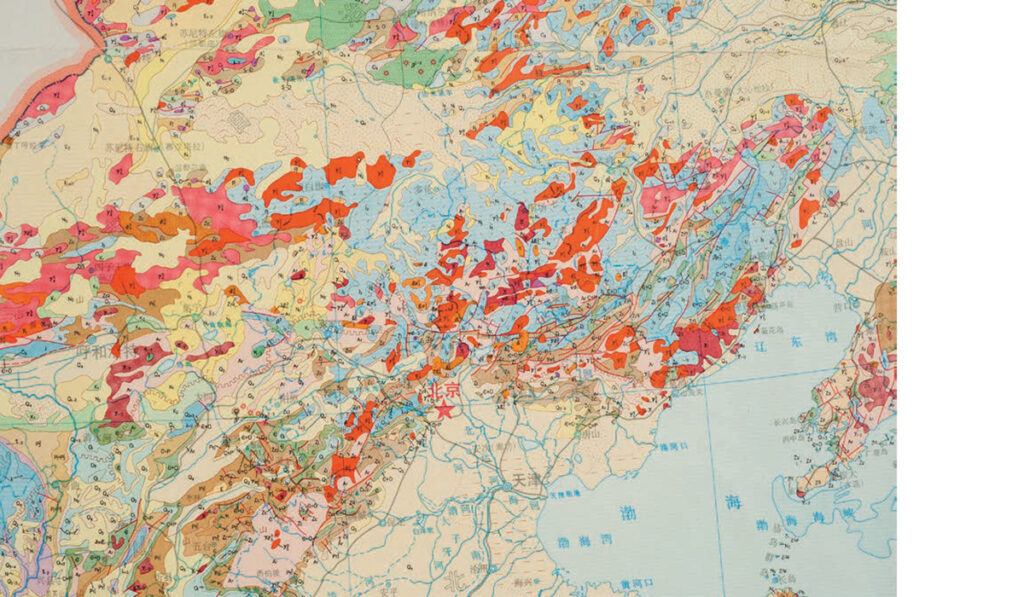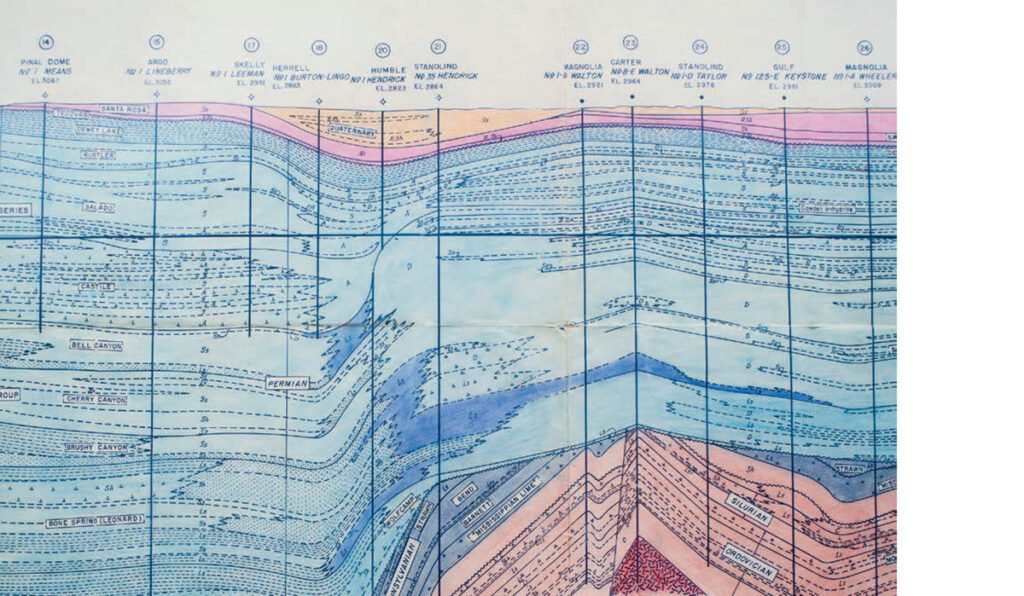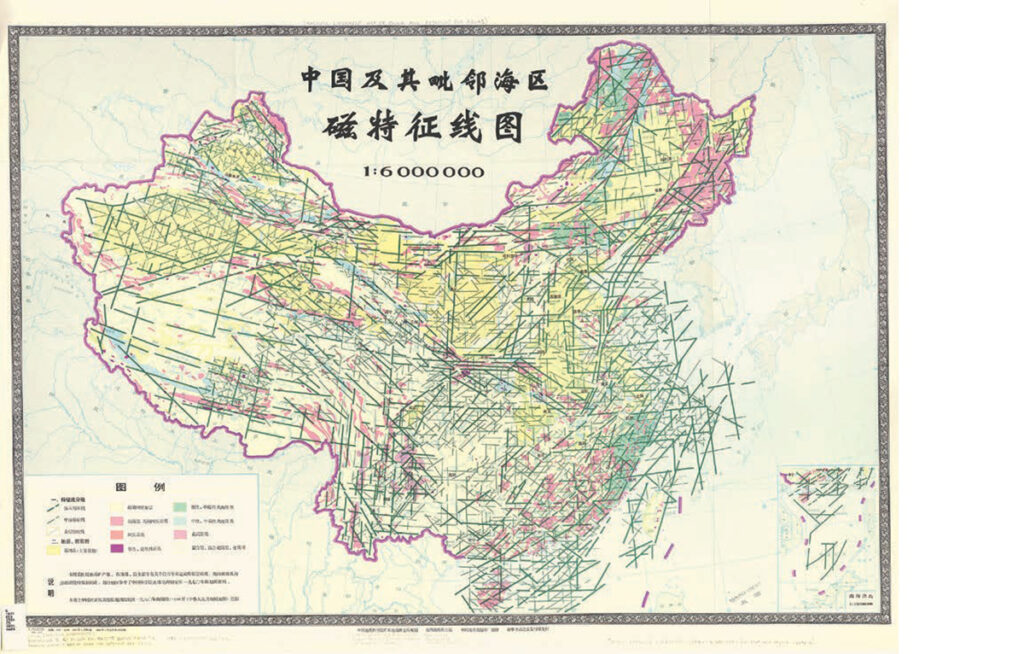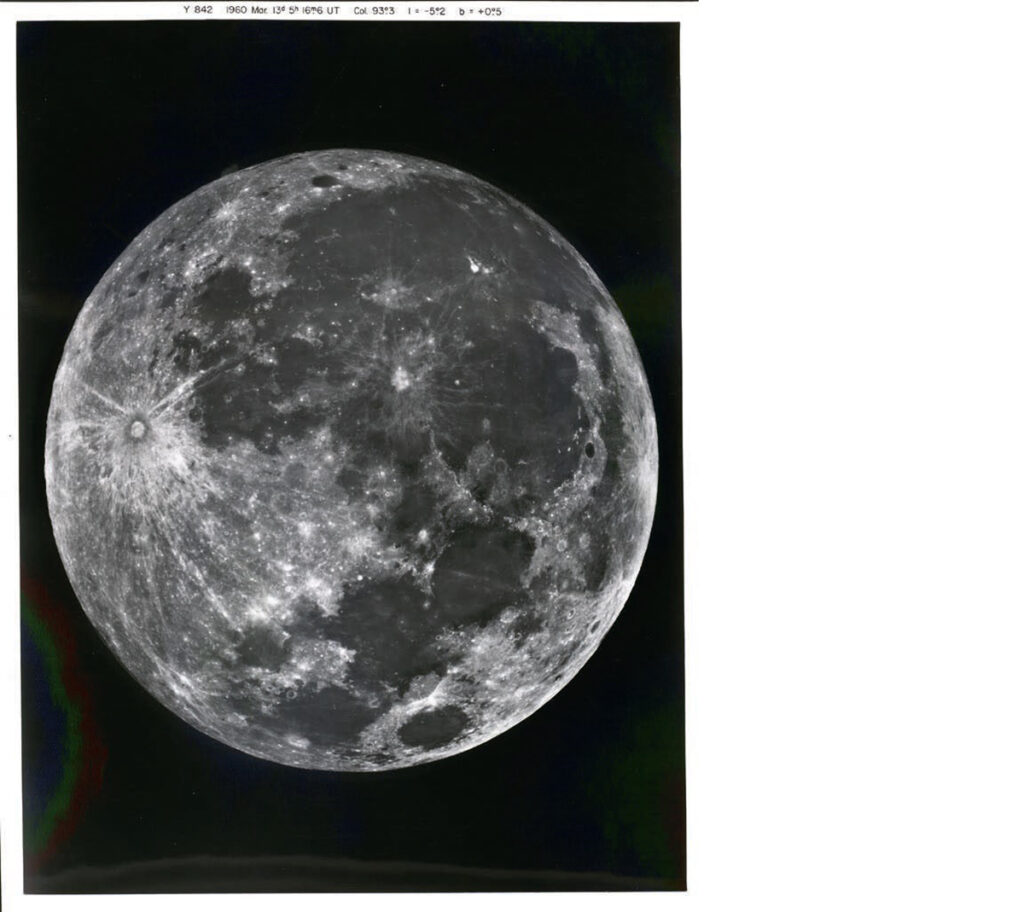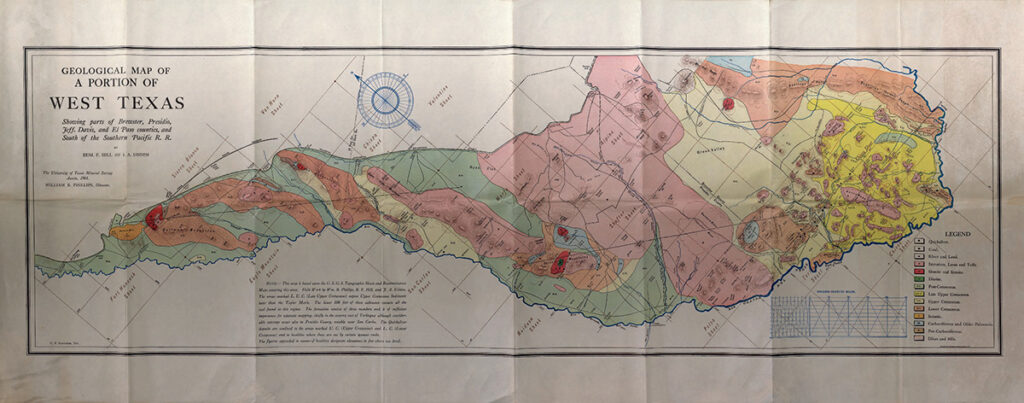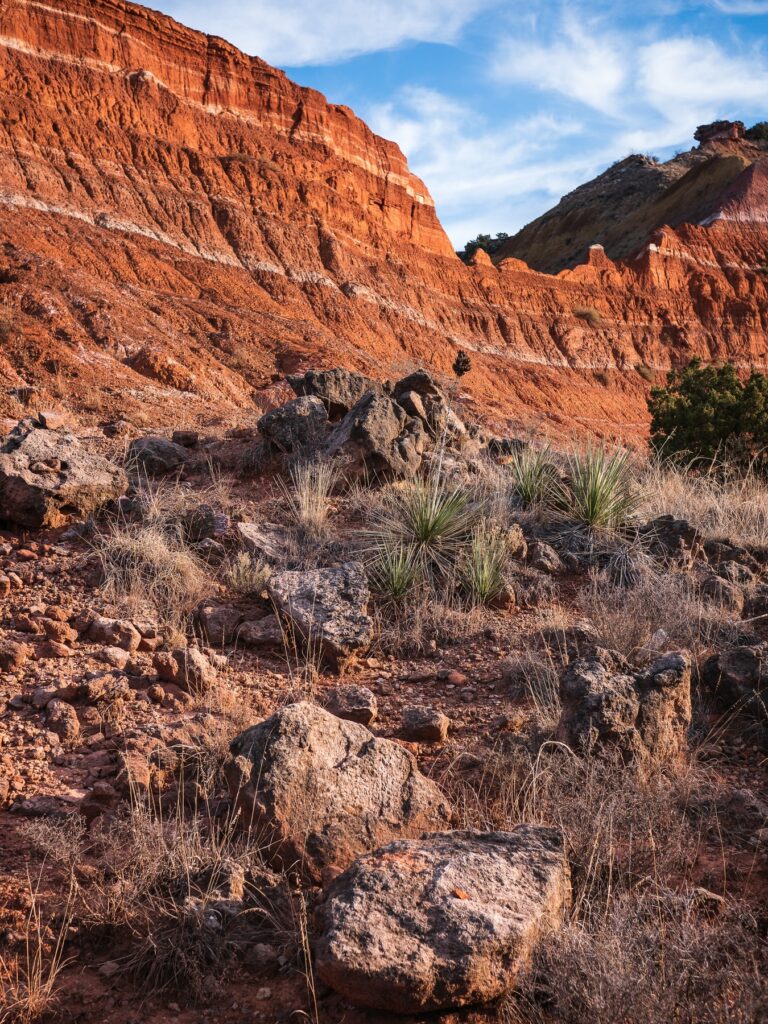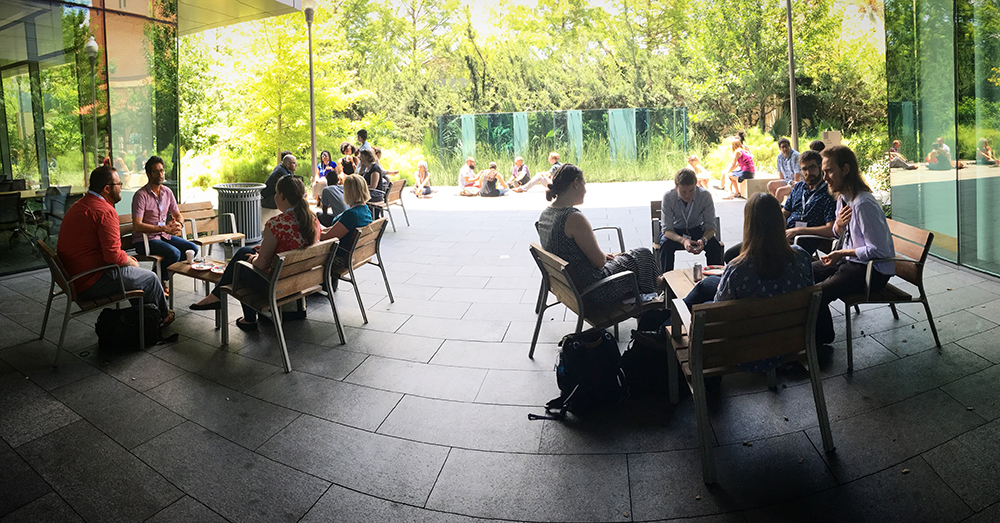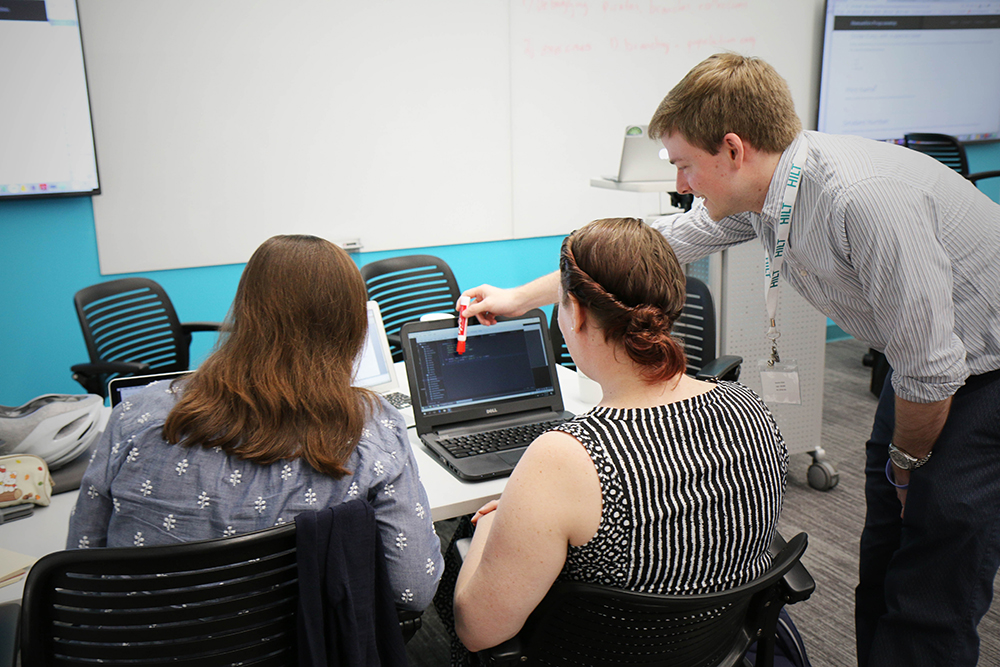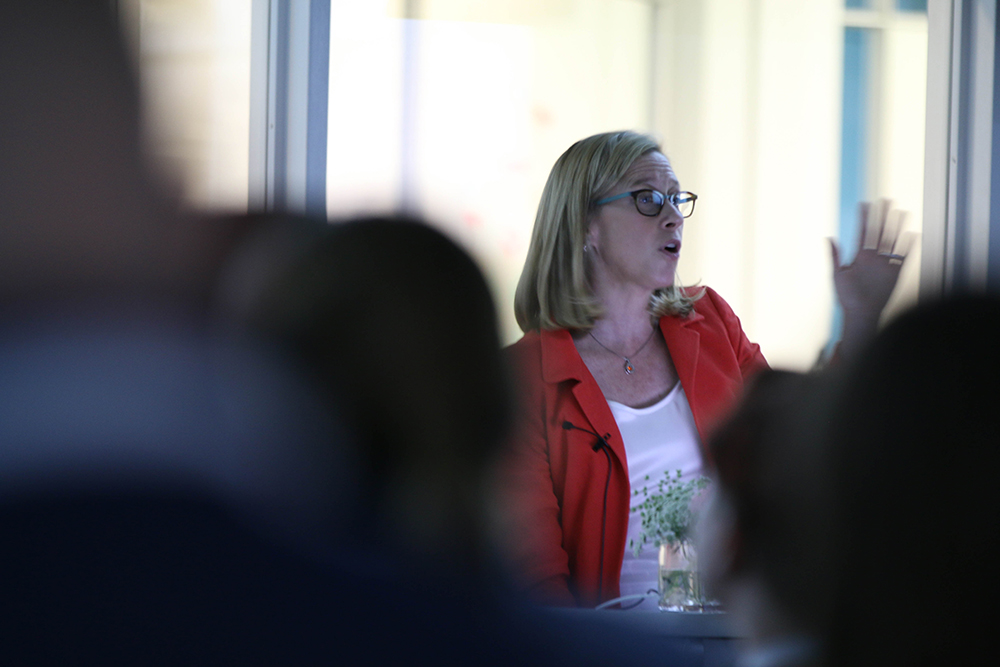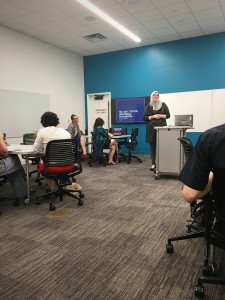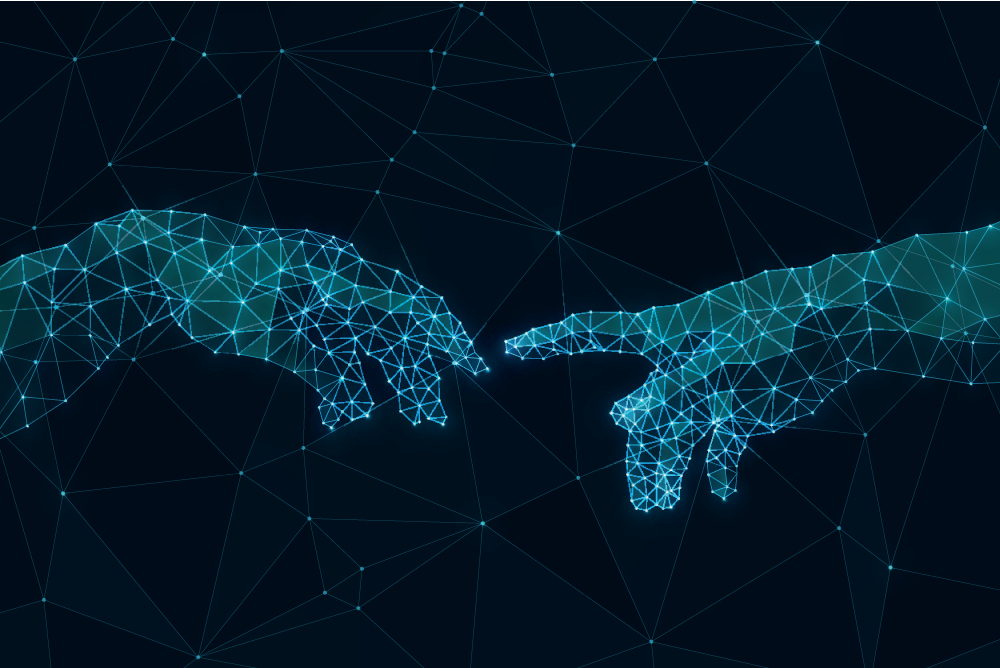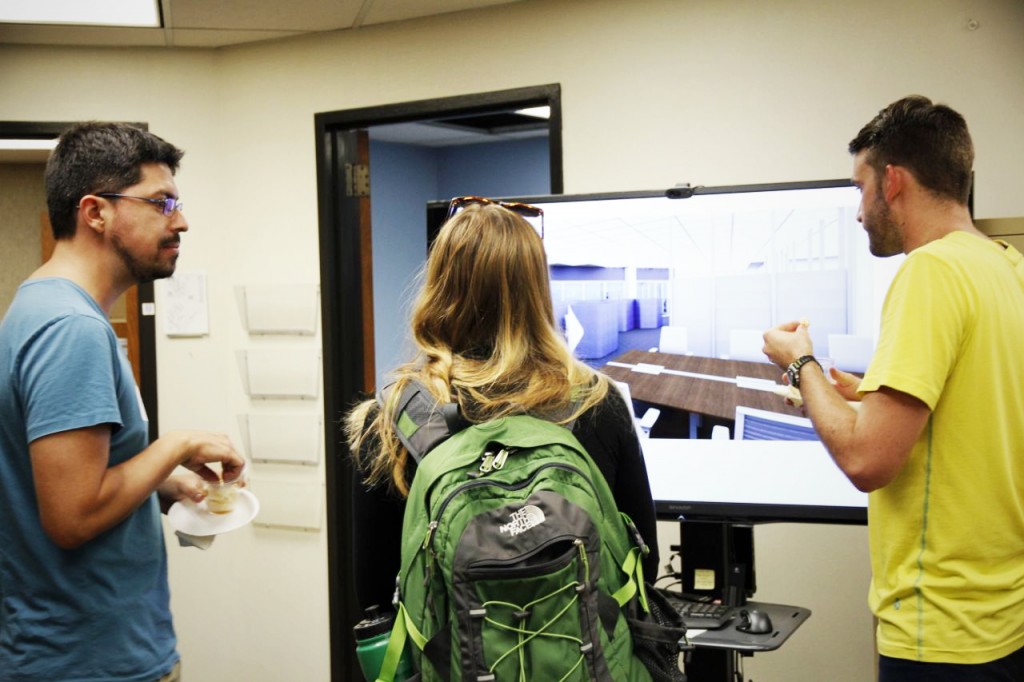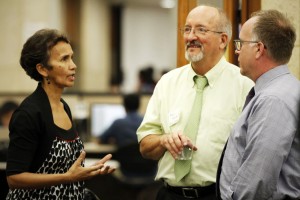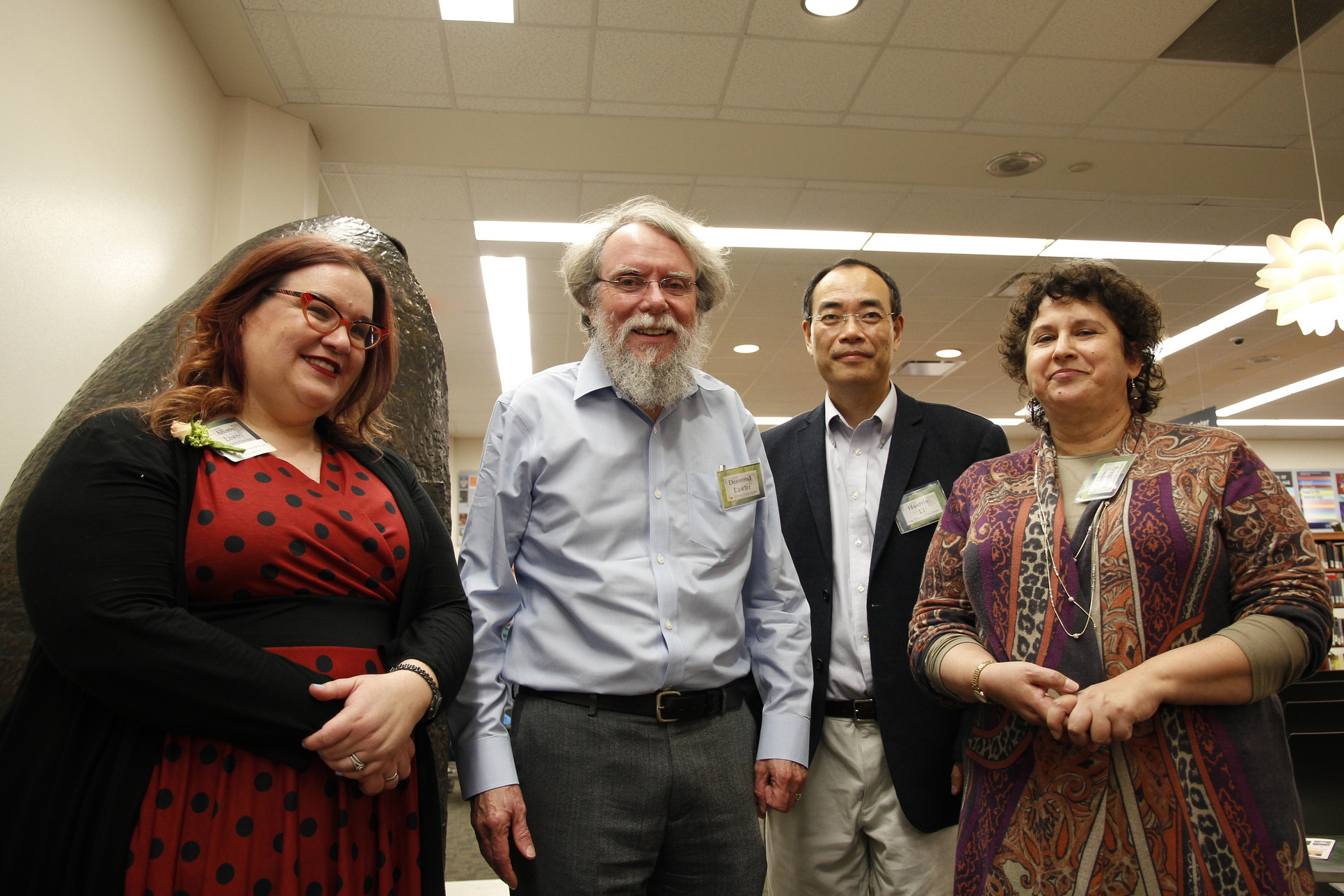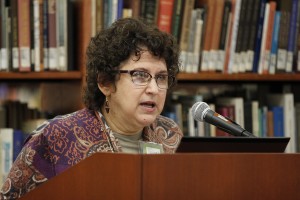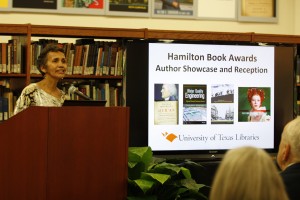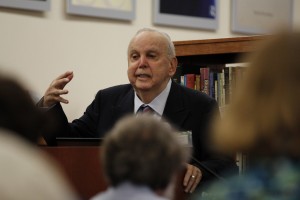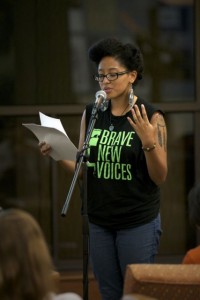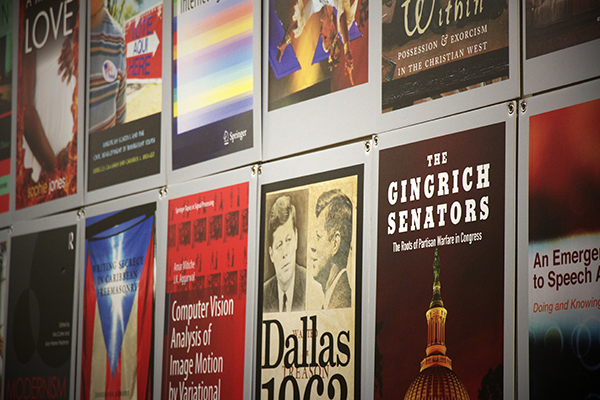Thirty five years ago, Dennis Trombatore arrived at the UT Austin campus, and from the start he was highly conscious of the long legacy of the Geology Library and that of the formidable librarians who had preceded him in the charge of that major collection. Despite feeling the strong gaze of Thelma Guion (https://guides.lib.utexas.edu/geo/about), the singular personality who ruled over the geology information sphere as librarian between 1940 and the early 1970s, Dennis jumped in, immersed himself, and never looked back.
A self-described “professional generalist,” Dennis was formally educated in philosophy, but quickly developed a natural affinity and deep appreciation for the esoterica of geosciences information: geological survey reports, rocks, gems and fossils, maps and field trip guides. He loved working closely with and learning from faculty and students in the Jackson School of Geosciences.
“A good library is a place to go, and a person to talk to, who understands what you’re doing, who sympathizes with your worldview, who talks your language, and who is looking out for you in the world of information all the time.”
Ever-curious and always ready to help, his definition of what a library, and a librarian, should be, epitomized Dennis’s approach to his work in the Walter Geology Library.
Several defining objectives consistently guided his efforts to amass and share a wealth of information about all of the things of interest to his faculty and students, community experts and generalists like himself. Those were collection-building, access to collections, and the relationships that served as the fuel for the continuously-enhanced cycle of learning and sharing that positioned Dennis as an information hub within the Jackson School for more than three decades.
Dennis’ collection-building, through relentless painstaking searches and world-wide acquisition efforts, coordination of gifts, and tracking of UT research output, was always front and center in his activities. Maps were an integral part of that work, and Dennis curated a truly exceptional collection of map materials in support of teaching and research in the geosciences, the Tobin International Geological Map Collection (https://guides.lib.utexas.edu/geo/tobin-maps). He led the effort to build on UT’s existing map collections, through the acquisition of geospatial data sets, GIS technology, and the expertise to fully utilize the details therein. And he was a tireless advocate for and user of the UT Libraries renowned PCL Map Collection (https://texlibris.lib.utexas.edu/2015/05/22/you-are-everywhere-the-pcl-map-collection/). His understanding of the power and value of maps was evident not just in his efforts to build the Libraries collections, but even in references to maps in his own creative output (https://repositories.lib.utexas.edu/handle/2152/82153) which in turn was shared openly with the world using the Libraries’ repository infrastructure.
Ensuring access to what he curated was key for Dennis. His strong desire to make the rich, multi-faceted fruits of his collection-building work discoverable prompted his early interest in web-based tools to ensure the discoverability and preservation of his efforts, including Texas ScholarWorks (TSW), our digital repository, our Texas Data Repository (TDR), and our nascent Texas GeoData portal.
Our Head of Scholarly Communications, Colleen Lyon, recalls that, “Dennis was instrumental in so many collections in TSW – he was one of the most active liaisons in referring users to us.” Several stand-out examples of unique submissions for Colleen include:
- The Dr. Henryk Bronislaw Stenzel Letters. Decades of Tertiary stratigraphy and non-vertebrate paleontology-focused work captured in a collection of over 6,000 letters to and from Dr. Stenzel. It was Dennis who initially put Colleen and TSW in touch with the curators of the Stenzel Letters collection. An earlier TexLibris post details background on this collection (https://texlibris.lib.utexas.edu/2018/12/20/collections-highlight-the-digitized-letters-of-dr-henryk-bronislaw-stenzel/), and the letters are available in TSW at: https://repositories.lib.utexas.edu/handle/2152/47262
- Memoirs on the Extinct Wingless Birds of New Zealand. It may have existed as HTML on the Walter Geology Library website, but she remembers, “Dennis wanted it to have a more permanent home and one that was easier to cite. He didn’t want to lose all the functionality that comes with having something as a website, so we uploaded all the pages/images and then created an image index that allows you to jump around to the different images (plates) within the work. This work has the most amazing drawings in it! That plate index has had over 1100 downloads.” You can see this in TSW at: https://repositories.lib.utexas.edu/handle/2152/16251
- The Virtual Landscapes Collection. This collection of Dumble Survey reports and many other documents was Dennis’ labor of love over many years. The content was migrated from the UT Libraries legacy website to TSW earlier this year, bringing all of the related documents together in a single location. Read more at: https://repositories.lib.utexas.edu/handle/2152/69304
Another project that Dennis coordinated was the digitization of theses and dissertations. He sought out alumni to grant permission to digitize their master’s and doctoral theses and make them available through TSW. Thanks to his efforts, there are hundreds of geology theses in the repository, about half of which pre-date its launch in 2008 (https://texlibris.lib.utexas.edu/2018/09/26/happy-10th-birthday-texas-scholarworks/). Rather fittingly, quite a few of the theses and dissertations available in TSW include Dennis’s name in their acknowledgements sections, along with their authors’ heartfelt expressions of gratitude and appreciation for the guidance and assistance he had provided. One such acknowledgement aptly describes Dennis as someone “whose work and efforts are immeasurable and irreplaceable” – a statement which accurately captures the value of his contributions and the strength of the impression he left on others.
Dennis delighted in telling stories and connecting people via the relationships he fostered, all of which enriched his contributions to UT’s research ecosystem. Mentoring students, both those doing research and those who were employees, was an ongoing part of who Dennis was, the role he played in the Jackson School, and how he remained in contact with so many graduates over the years. He was the type of person who would be proactive in reaching out to someone new on campus to welcome them, who would find a way to rearrange his schedule so that he could travel across town to attend a colleague’s presentation. His sincere enthusiasm for sharing knowledge and building real connections with others across the university community and beyond, was clearly evident in both his actions and words.
“The collection is an important component of what it is that we do in libraries, but it is the social network that the library represents that is the most significant, to me, aspect of librarianship. Three or four good people can do a lot more than an empty roomful of books in terms of helping people to advance their research.”
Some of his stories were about former Geology Librarian Thelma Guion’s stern demeanor and soft spot for the many student employees whom she supervised. (https://guides.lib.utexas.edu/geo/about) The irony there is the similarity between Thelma and Dennis: while he suffered no fools, Dennis was always open to teaching his students about things and providing them with resources that would help them both with their research and in life. Establishing the Guion award fund for Geology Library employees was one of Dennis’ proudest achievements.
Ms. Guion’s close relationship to many faculty helped to expand and deepen the library’s collection in ways that would simply not have been possible with regular budgets, and Dennis modeled his collection philosophy after hers. Those relationships paid off in major gifts of unique and valuable materials for many years.
One such recent gift was from a prominent member of the local caving community, Bill Mixon — former book review editor for the National Speleological Society and friend of the Walter Library — who donated his unique collection of over 1000 books and more than 1000 periodical issues related to cave and karst research, literature, and culture, enhancing the Geology Library’s notable existing holdings (https://texlibris.lib.utexas.edu/2019/02/21/area-spelunker-donates-cave-collection/).
Raychel Sanner.
Over the years, gifts of materials included items from major oil company libraries, UNOCAL maps, materials from the American Geosciences Institute, Bureau of Economic Geology and Institute for Geophysics, and the Edwards Aquifer Authority in San Antonio, to name a few. All donations of materials required careful review and curation, as Dennis only retained items to augment areas of focus within the Walter Geology Library and research interest at UT Austin.
The symbiotic, reciprocal relationship between collections and the people who use, learn from and contribute to them often needs a catalyst, someone to prompt attention, encourage exploration and entice action at just the right moment. Dennis was that energetic, compelling force that spurred the dynamic flow of information to nurture productivity throughout the Jackson School, and that will continue to pulse through electronic arteries for decades to come.

